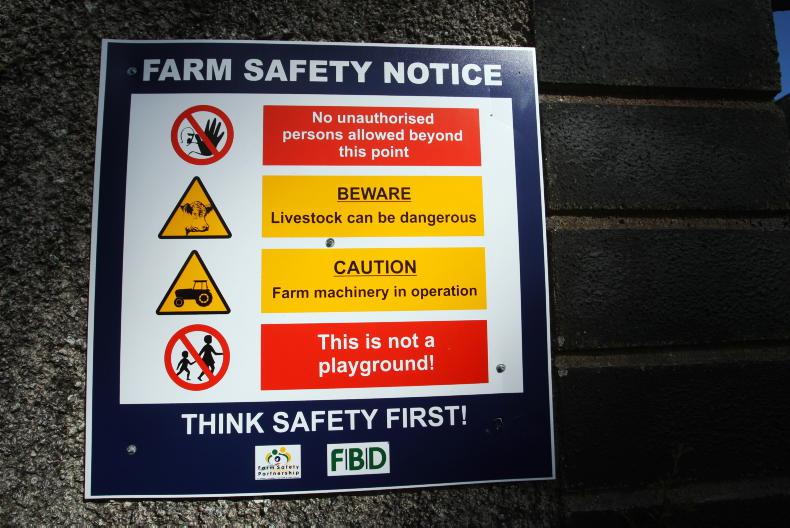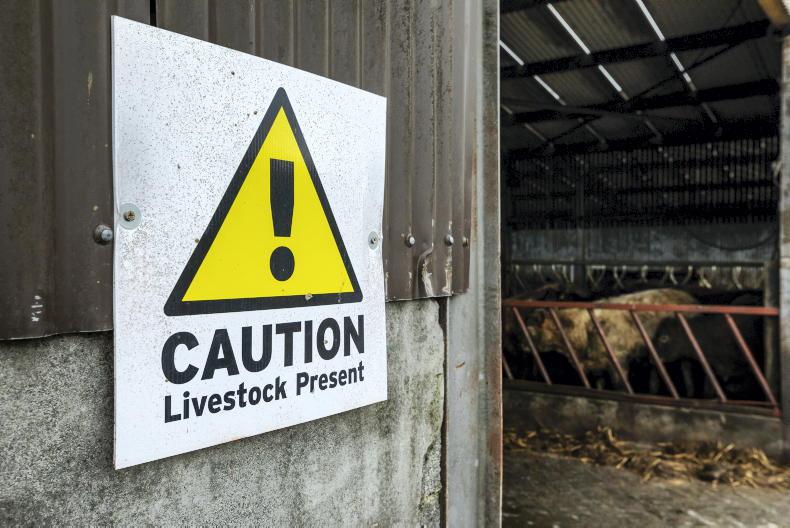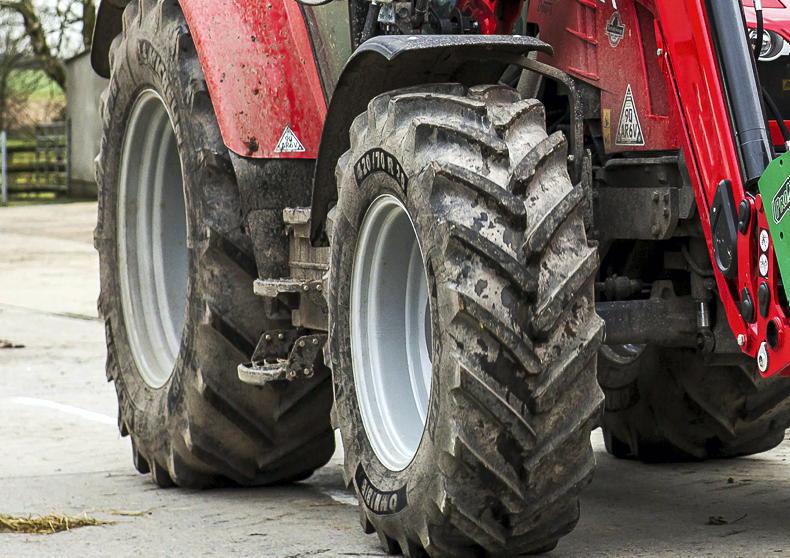The sad news emerged of another confirmed farm fatality over the weekend. A Kerry farmer in his seventies became the third on-farm accidental death in little over a week. The fact that the previous deaths were in Kilkenny and Donegal only highlights the fact that this is a nationwide problem.
There were 11 deaths in the Republic of Ireland from farm accidents in 2022 prior to these three. Fourteen represents a sharp increase on the nine farm deaths last year. Three people have died on farms in Northern Ireland during the same period.
The broader context is worse still. While nine deaths in the Republic of Ireland last year was the lowest in many years, it still represented almost one in four of the 38 workplace fatalities across all sectors.
That needs digesting. The total Irish workforce is now approaching 2.5m people. The number employed in farming is about 10% of that figure. It’s obvious that accountancy and IT carry less risk than farming, but still – no other sector is as dangerous and potentially lethal as farming.
There was a time when the construction sector accounted for a large proportion of all workplace accidents.
A huge health and safety drive, through a combination of regulations and pretty rigorous enforcement, eventually transformed the sector.
This was not without cost, for it has undoubtedly increased construction costs in this country, but it’s impossible to argue against protecting human life when at work.
Indeed, one of the controversial aspects of the World Cup in Qatar is the cost in human lives when building the stadia and other infrastructure required.
The reality of farming is that practically everything a farmer does is potentially dangerous. Handling animals and operating and servicing machinery all carry an element of risk. The key is minimising this risk. We know that risk is elevated when children or older people are involved. And we know that the risk factor multiplies again if people are on their own.
Farmers need to change the way they work or the sad statistics won’t improve. In fairness, this Government has put an emphasis on farm safety, with Martin Heydon having specific responsibility for the issue. And the focus on mental wellbeing is also appropriate – a tired or stressed person is more likely to make a mistake, and in farming, a single mistake can be very costly.
The inclusion of farm safety measures in TAMS is similarly welcome, and that is likely to continue in the new TAMS next year.
However, finding matching funds for TAMS grants is a challenge, particularly on smaller farms. Could something be done to help farmers borrow the necessary funds?
Some approved financial instrument, perhaps within the credit union movement, would be welcome.
The sad news emerged of another confirmed farm fatality over the weekend. A Kerry farmer in his seventies became the third on-farm accidental death in little over a week. The fact that the previous deaths were in Kilkenny and Donegal only highlights the fact that this is a nationwide problem.
There were 11 deaths in the Republic of Ireland from farm accidents in 2022 prior to these three. Fourteen represents a sharp increase on the nine farm deaths last year. Three people have died on farms in Northern Ireland during the same period.
The broader context is worse still. While nine deaths in the Republic of Ireland last year was the lowest in many years, it still represented almost one in four of the 38 workplace fatalities across all sectors.
That needs digesting. The total Irish workforce is now approaching 2.5m people. The number employed in farming is about 10% of that figure. It’s obvious that accountancy and IT carry less risk than farming, but still – no other sector is as dangerous and potentially lethal as farming.
There was a time when the construction sector accounted for a large proportion of all workplace accidents.
A huge health and safety drive, through a combination of regulations and pretty rigorous enforcement, eventually transformed the sector.
This was not without cost, for it has undoubtedly increased construction costs in this country, but it’s impossible to argue against protecting human life when at work.
Indeed, one of the controversial aspects of the World Cup in Qatar is the cost in human lives when building the stadia and other infrastructure required.
The reality of farming is that practically everything a farmer does is potentially dangerous. Handling animals and operating and servicing machinery all carry an element of risk. The key is minimising this risk. We know that risk is elevated when children or older people are involved. And we know that the risk factor multiplies again if people are on their own.
Farmers need to change the way they work or the sad statistics won’t improve. In fairness, this Government has put an emphasis on farm safety, with Martin Heydon having specific responsibility for the issue. And the focus on mental wellbeing is also appropriate – a tired or stressed person is more likely to make a mistake, and in farming, a single mistake can be very costly.
The inclusion of farm safety measures in TAMS is similarly welcome, and that is likely to continue in the new TAMS next year.
However, finding matching funds for TAMS grants is a challenge, particularly on smaller farms. Could something be done to help farmers borrow the necessary funds?
Some approved financial instrument, perhaps within the credit union movement, would be welcome.









SHARING OPTIONS